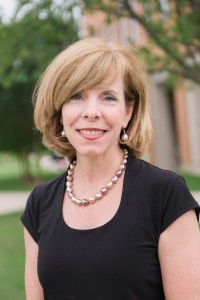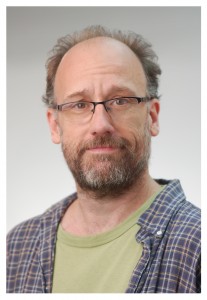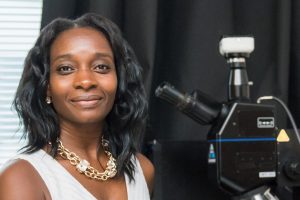PLENARY SPEAKER:
Director of the Frank Reidy Research Center of Bioelectrics at Old Dominion University
Development of a self-powered biosensing system
Recent studies on biofuel cells have shown that energy can be harvested from biological compounds. Because of the recent biofuel cell discoveries, it is possible to use biochemical power scavenging design by converting interstitial glucose into energy through the coupling of enzymes and three-dimensional carbon nanotubes (CNTs). This talk will discuss our own contribution to identifying a pathway to embed sensing by eliminating the need for a potentiostat circuit and an external power source required in conventional amperometric glucose sensors. The self-powered biosensing system consist of massively dense network of 3-D CNTs cell structures fused with an energy amplification circuit that maximizes power and energy densities while maintaining short ion transport distances, thus leading to dramatic improvement in both speed and energy efficiency of biofuel cells. By combining the advantages of porous CNTs and energy amplification circuits, the sensor system exhibited unprecedented performance with high sensitivity, selectivity, and fast response time. Not only is such a paradigm extremely fast because of absence of a potentiostat circuit, but it is also extremely energy-efficient since the device operates at low voltage and current levels. As a result, the biosensing system generates a drive signal in real-time and continuously powers an electrical device by generating and accumulating electrical power as a result of the catalysis of glucose while sensing glucose. We further envision that the self-powered glucose biosensing system could be greatly reduced in footprint by using microsystem techniques and other inexpensive deposition methods to deposit dense mesh network of carbon nanotubes and/ metal wire traces. We believe that this type of high-performance, self-powered glucose biosensing system, combined with low-cost construction shows great potential for use in biotechnology applications relating to medical diagnosis and diabetes management.
Gymama Slaughter is the Executive Director of the Center for Bioelectrics. She received her B.S. in Chemistry in 2001, M.S. in Chemical Engineering in 2003, and a Ph.D. in Computer Engineering from the Virginia Commonwealth University in 2005. She was selected to participated in the Office of Naval Research Sabbatical Leave Program at the Naval Research Laboratory’s Center for Bio/Molecular Science and Engineering (CBMSE) where she served as CBMSE Visiting Scholar and conducted research on the development of flexible biodegradable biological and chemical sensors. Slaughter develops and applies sensor-processor platforms, focusing on innovative contributions to identifying a pathway to embed sensing and processing functions in the same device to eliminate bottlenecks arising from communication between the sensor, transducer and processor, thus, resulting in ultra-fast and ultra-low power devices. Her research has been supported by the National Science Foundation, Department of Army, TEDCO Maryland Innovative Initiative, and the Maryland Industry Partnership. Her research interests include biosensors, microsensors, microfabrication technology, and BioMEMS. She is the recipient of the National Science Foundation’s prestigious CAREER AWARD. The award recognizes junior faculty who exemplify the role of teacher-scholar through outstanding research, excellent education and the integration of education and research.
Workshops:
Master the Art of Making Connections
UC 310, University Center, 3rd Floor, Times: 10:30 am – 11:30 am and 1:30 pm – 2:30 pm
In the world of science, we communicate with others many times throughout our day. Effective communication in STEM is crucial and is more than just exchanging information. Effective communication combines a set of skills including nonverbal communication, attentive listening, and the ability to respond appropriately. How well you communicate will determine the impression you make and how others understand your work. It may influence funding and many other opportunities. This workshop is designed to help you learn effective communication skills, as well as how to talk about yourself and your accomplishments in a way that effectively showcases your strengths and passion for science – a skill that will positively impact your professional image as a scientist and ultimately your career.
Susan Hindle is the Assistant Director, Internships and Employment for the College of Natural and Mathematical Science at UMBC.
Susan has 20 years’ experience working with students and
alumni in all phases of the career development process. Prior to coming to UMBC in January 2014, Susan worked as a Career Advisor for the both The Johns Hopkins University and the A. James Clark School of Engineering at the University of Maryland. Susan has her undergraduate
degree in elementary education from the University of Maryland, College Park and her master’s degree in clinical counseling from The Johns Hopkins University.
A Very, Very Short Introduction to Ethics for Scientists
University Center, 1st Floor CASTLE, UC 115, Times: 10:30 am – 11:30 am and 1:30 pm – 2:30 pm
This workshop will provide a basic overview of the two dominant approaches to thinking about ethical problems. You’ll then have a chance to apply these approaches to ethical dilemmas and problems, including some of the sort that might arise specifically for scientists.
James Thomas is a Faculty Lecturer in the Department of Philosophy at UMBC.
Jim received a B.A. with honors from the University of Arkansas at Fayetteville with a major in philosophy. He went on to get a Masters degree in philosophy at the University of Arkansas where he received the Philip S. Bashor Award for outstanding graduate student. He earned a second M.A. in philosophy at the University of Washington in Seattle. He is currently a lecturer in the Philosophy Department at the University of Maryland, Baltimore County, where he has been teaching for the last fifteen years. He has also taught courses at the University of Arkansas and the University of Maryland, College Park . His research is focused on Metaphysics, Evolutionary Theory and Philosophy of Humor, and Philosophy of Perception.
